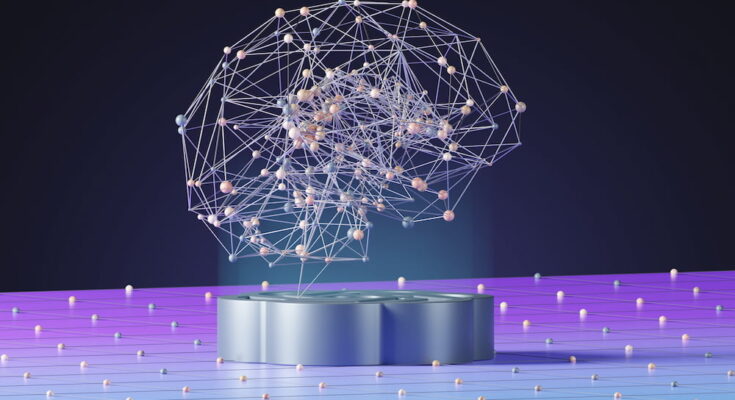The field of artificial intelligence has witnessed significant growth and advancements over the years. As we enter the year 2024, we are on the verge of a new era in AI known as Gen AI, short for General AI. Gen AI represents the next phase in AI evolution, where machines are not just programmed to perform specific tasks but possess human-like cognitive abilities and adaptability. In this article, we will explore the rise of Gen AI, technological advancements fueling its development, its impact on various industries, and the exciting future that lies ahead.
The Rise of Gen AI
Gen AI represents a groundbreaking shift from specialized AI systems towards more versatile and adaptable AI agents. Unlike its predecessors, which were designed to excel in specific tasks, Gen AI possesses the ability to generalize its learning and apply it to a wide range of scenarios. This broader intelligence stems from advancements in machine learning techniques, such as deep learning and reinforcement learning, which enable AI systems to learn from vast amounts of data and make complex decisions.
The development of Gen AI has been fueled by the availability of massive amounts of data and sophisticated algorithms that can process and extract meaningful insights from these datasets. Additionally, the increased computational power and storage capabilities have allowed AI systems to process these massive datasets more efficiently, making it possible to train complex models that mimic human cognitive abilities.
Technological Advances
There are several key technological advances that have paved the way for the development of Gen AI. One of the most significant advances is the introduction of neural networks, particularly deep neural networks, which have revolutionized the field of AI. These networks are inspired by the structure and functioning of the human brain, allowing AI systems to learn hierarchical representations of data and make more nuanced decisions.
Another crucial technological advancement is the rise of natural language processing (NLP) and natural language understanding (NLU) capabilities. Gen AI systems can now comprehend and generate human languages with a high level of accuracy, allowing for more seamless human-machine interactions. This progress in NLP has also led to the development of virtual assistants and chatbots that can converse with users in a human-like manner, further blurring the lines between humans and machines.
Furthermore, advancements in computer vision have enabled AI systems to analyze and understand visual information with unparalleled accuracy. This has applications in various fields, including autonomous vehicles, healthcare diagnostics, and image recognition. Gen AI systems can now “see” and interpret visual data, allowing them to perform complex tasks that were once exclusive to human expertise.
Impact on Industries
The emergence of Gen AI is set to revolutionize various industries and reshape the way we live and work. Let’s explore the potential impact of Gen AI in some key sectors:
Healthcare: Gen AI has the potential to transform healthcare by improving diagnostics and personalized treatment. AI-powered systems can analyze patient data, medical records, and research papers to provide accurate diagnoses and suggest personalized treatment plans. This can lead to more efficient healthcare delivery and potentially save lives.
Finance: Gen AI can revolutionize the financial sector by providing better fraud detection, risk assessment, and personalized financial advice. AI algorithms can analyze vast amounts of financial data and make real-time predictions, helping financial institutions make more informed decisions and provide tailored services to their customers.
Transportation: Gen AI can enhance the efficiency and safety of transportation systems. AI-powered vehicles can make split-second decisions based on real-time data, leading to safer and more reliable autonomous driving. Additionally, intelligent traffic management systems can optimize traffic flow, reduce congestion, and minimize the environmental impact of transportation.
Education: Gen AI has the potential to transform the way we learn and acquire knowledge. AI-powered personalized learning platforms can adapt to individual students’ needs, providing tailored recommendations and interventions to improve learning outcomes. This can revolutionize traditional education systems and make learning more accessible and engaging for learners of all ages.
The Future of Gen AI
As we look into the future, the potential of Gen AI seems limitless. Here are some predictions for how Gen AI might evolve in the coming years:
Enhanced Cognitive Abilities: Gen AI systems will continue to improve their cognitive abilities, with advancements in natural language processing, computer vision, and reasoning. This will enable them to understand and interact with humans more seamlessly, leading to more intuitive and user-friendly AI experiences.
Ethical Considerations: As AI continues to advance, ethical considerations will become increasingly important. Gen AI systems will need to be programmed with ethical guidelines to ensure responsible decision-making and to avoid biases or discriminatory behavior.
Collaboration with Humans: Gen AI will not replace humans but rather work alongside them, augmenting human capabilities and improving productivity. Collaborative AI systems will be designed to seamlessly integrate with human workflows, assisting in complex decision-making, and automating repetitive tasks.
Domain-Specific Gen AI: Gen AI systems will specialize in specific industries or domains, becoming experts in their respective fields. This specialization will result in more accurate and relevant insights, making Gen AI an invaluable tool for various sectors such as healthcare, finance, and manufacturing.
In conclusion, the evolution of Gen AI represents a significant milestone in the field of artificial intelligence. With its broader intelligence, adaptability, and human-like cognitive abilities, Gen AI has the potential to reshape industries and enhance various aspects of our lives. However, it is crucial to approach the development and deployment of Gen AI with responsible and ethical considerations to ensure its positive impact on society. As we move forward, let us embrace this new era of AI and harness its potential to create a better and more sustainable future.




